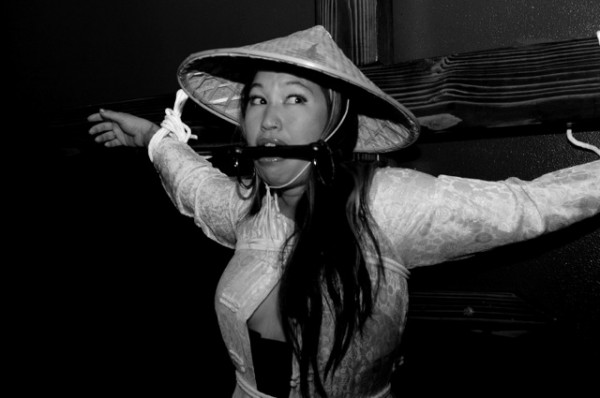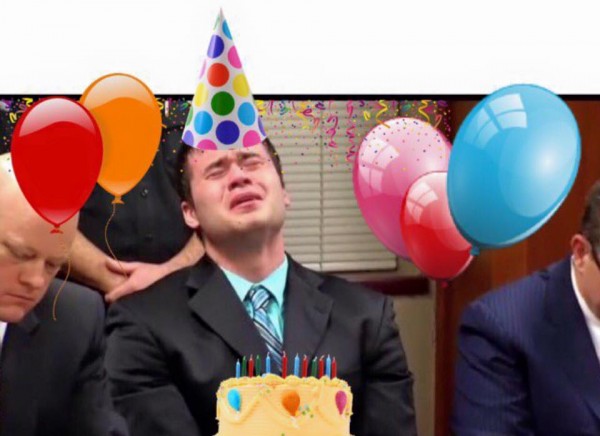World Leaders: An East Asian Sex Worker Round Table

Participants: Ho Lee Fuk 1, Nada 2, Christian Vega3, and Kate Zen; moderated by Mariko Passion
We at Tits and Sass wanted to run a series on racial fetishization in sex work. We were interested in questions like “What is it like for sex workers of color to labor in an industry where customers’ racist attitudes are often allowed to run rampant and may even be encouraged by management or workers themselves as a way to generate more income?” “How does your race shape the way you create and market your work persona?” “Are there advantages as well as disadvantages to being of color and working in the sex industry?” Mariko took this idea, found participants, and ran with it, creating an East Asian sex worker round table. We’d also love to hear from non-Asian sex workers of color on their fetishization in the sex trade and how they cope with it, capitalize on it, and rise above it.
Note from Mariko: This is just one roundtable. No social justice lens was used to select the voices heard here, and to be transparent, all the participants have a four year degree and all except one are part of pretty exclusive circles of global activism and First World/class privileged cisgendered folks. This post is not meant to be THE voice of East Asian sex workers, just an interesting, well voiced snapshot.
What are some racialized marketing techniques you have experimented with in your sex work?
Ho Lee Fuk: My ad did say Asian, and I had a full face pic, but it was both to advertise my race and to warn off clients who weren’t seeking [an] Asian [provider]. Of the great and minor disappointments in life, there’s nothing like getting dim sum when you really want lasagna.
Nada: I just try to be myself, I don’t put ASIAN ASIAN ASIAN everywhere.
Kate Zen: Oh, I market it consciously. Especially here in Quebec, where there are fewer Asians around.
Ho Lee Fuk: There are like four male sex workers in the whole East Bay (location, location, location!), and I was the only Asian. Which meant I didn’t have to compete with these muscle girls with nine inch cocks working in SF. I was kind of the prettiest dish on the knick-knacks table at the church bazaar.
What is one scene involving Asian race play that you refuse to do? What is your criteria for rejection?
Kate Zen: I’m kind of ashamed to say that I don’t have a strong criteria for rejection. If you pay me enough money, most dominant roles are fair game, since it’s all clearly pretend to me anyways. I feel that my client’s personal ignorance is his own problem. I don’t usually make it my job to educate him. However, I don’t often switch or play submissive roles, which is more often the Asian stereotype—so sometimes, just by insisting on a dominant role in every scene, I feel that I am rejecting many Asian stereotypes. In fact, it’s a relief that I can say: “Hey Mom! I’m not exactly a doctor like you wanted, but sometimes, I still get to wear a stethoscope!”
Nada: I refused to be a yoga teacher. I think it is the worst kind of appropriation in the West. But don’t worry—I only apply this criteria to my own actions. I understand everyone will do what they need to in their own lives.
 Like, I had to go strip. I had to go, ‘Oh yeah, you want to fuck me? Oh, yeah, yeah, yeah, let’s go to this hotel,’ and I’d drug ni**as up, and I’d rob them. That’s what I used to do! Nothing was motherfucking handed to me, my ni**a. Nothing.
Like, I had to go strip. I had to go, ‘Oh yeah, you want to fuck me? Oh, yeah, yeah, yeah, let’s go to this hotel,’ and I’d drug ni**as up, and I’d rob them. That’s what I used to do! Nothing was motherfucking handed to me, my ni**a. Nothing.
